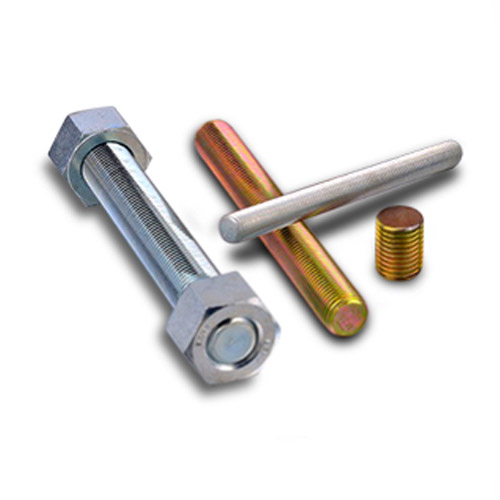

a flat washer
Sep . 25, 2024 22:14 Back to list
a flat washer
Understanding Flat Washers Essential Components in Various Applications
Flat washers might seem like mundane little discs of metal, but they play a crucial role in a wide range of applications across various industries. These simple yet effective components are used to distribute loads of screws and bolts, prevent damage to surfaces, and reduce friction in mechanical assemblies. In this article, we will explore the different types of flat washers, their materials, applications, and tips for selecting the right one for your project.
What Are Flat Washers?
A flat washer is a small flat disc, often made from metal, plastic, or rubber, with a hole in the center that fits over a bolt or screw. They serve multiple functions, such as increasing the surface area of the fastener, preventing the fastener from loosening, and protecting the surface of the connected materials. Flat washers are typically circular in shape, with the inner diameter slightly larger than the bolt diameter, allowing them to slide onto the fastener effortlessly.
Types of Flat Washers
Flat washers come in various sizes and two primary categories standard and non-standard washers.
1. Standard Flat Washers These are the most common type and are typically made from metal, such as steel or stainless steel. Standard sizes correspond to the American National Standards Institute (ANSI) specifications, making them easy to find and replace.
2. Specialty Washers These include washers that have specific properties, such as non-metallic materials for insulation or coated finishes for corrosion resistance. Some specific types include
- Lock Washers These are designed to prevent loosening under vibrations and dynamic loads, although they are not technically flat washers, they often accompany them. - Neoprene Washers Commonly used in plumbing applications to create a watertight seal. - Rubber Washers Often used in electrical applications for insulation.
Materials Used in Flat Washers
The material of a flat washer is crucial as it affects the washer's performance in different environments
. Here are some commonly used materials- Steel Often coated with zinc or other finishes to resist rust and corrosion. Steel washers are strong, but they require protective coatings when used in outdoor settings.
a flat washer

- Stainless Steel Excellent for environments prone to corrosion, like marine or chemical industrial settings. They offer enhanced durability and resistance to wear and tear.
- Plastic Non-corrosive and lightweight, plastic washers are ideal for electrical applications where insulation is required.
- Rubber or Neoprene Often used in plumbing to create seals and provide insulation.
Applications of Flat Washers
Flat washers have a versatile range of applications. Some common uses include
- Construction In steel frames, flat washers are used to distribute the load of bolts and screws, ensuring the stability and safety of the structure. - Automotive In vehicles, flat washers help hold components together and prevent damage to surfaces caused by tightening screws and bolts. - Electronics Used to insulate and protect delicate electronic components from damage during assembly. - Plumbing Flat washers are often found in plumbing fixtures to create watertight seals, preventing leaks.
Selecting the Right Flat Washer
When choosing a flat washer, consider the following factors
1. Size Ensure that the inner diameter of the washer matches the bolt or screw size. 2. Material Choose the appropriate material based on the environment and application (consider factors like load, temperature, and exposure to chemicals). 3. Thickness The thickness of the washer should be suitable for the application at hand; too thin may not distribute the load effectively, while too thick can create space issues. 4. Finish For applications exposed to moisture or chemicals, a suitable finish can help prevent corrosion.
Conclusion
Flat washers may be simple components, but their importance in various mechanical and structural applications cannot be underestimated. By understanding their types, materials, and applications, one can make more informed choices and ensure the success of their projects. Always remember that like many small parts, flat washers play a big role in the overall functionality and safety of the assemblies they support.
Latest news
-
Hot Dip Galvanized Bolts-About LongZe|High Strength, Corrosion Resistance
NewsJul.30,2025
-
High-Strength Hot Dip Galvanized Bolts - Hebei Longze | Corrosion Resistance, Customization
NewsJul.30,2025
-
Hot Dip Galvanized Bolts-Hebei Longze|Corrosion Resistance&High Strength
NewsJul.30,2025
-
High-Strength Hot-Dip Galvanized Bolts-Hebei Longze|Corrosion Resistance&High Strength
NewsJul.30,2025
-
Hot Dip Galvanized Bolts-Hebei Longze|Corrosion Resistance&High Strength
NewsJul.30,2025
-
Hot Dip Galvanized Bolts - Hebei Longze | Corrosion Resistance, High Strength
NewsJul.30,2025

